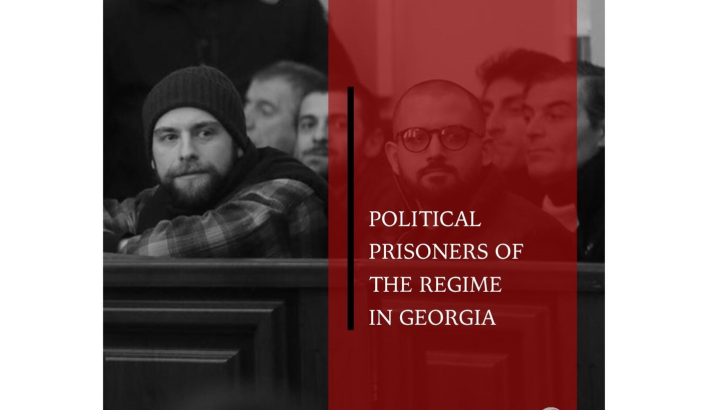
On November 28, 2024, Irakli Kobakhidze issued a statement announcing the Georgian Dream party's decision to to abort the efforts to start the accession negotiations with the European Union until the „end of 2028“. This announcement sparked widespread public outrage, leading to nationwide peaceful protests. The primary demands of the hundreds of thousands of demonstrators include the organization of new parliamentary elections and the release of individuals detained under the framework of ongoing repressions.
This development was preceded by the highly contentious parliamentary elections held on October 26, 2024, whose results were rejected by the President of Georgia, opposition parties that surpassed the electoral threshold, and a significant portion of the population. The elections were also critically assessed by the OSCE/ODIHR, whose unprecedentedly critical report highlighted numerous issues, including large-scale violations of the fundamental principle of electoral secrecy. These concerns are further exacerbated by the lack of international legitimacy surrounding the election process.
Furthermore, on November 25, 2024, the Parliament of Georgia, in violation of both the Constitution of Georgia and the Rules of Procedure of the Parliament of Georgia, unlawfully recognized the authority of 150 deputies. This action disrupted the democratic chain of governmental legitimacy and marked a departure from the constitutional order. The recognition of parliamentary authority was in direct contradiction to the Rules of Procedure, as the recognition of the legitimacy of full composition of the Parliament was under appeal in the Constitutional Court. Consequently, until the Constitutional Court rendered its decision, the Parliament lacked the legal authority to convene and validate the mandates of its members.
The Georgian Dream has responded to the legitimate protests of the people with extensive and brutal police force, resorting to repression. To date, the authorities have detained approximately 500 participants in the peaceful demonstrations held outside the Parliament building. The majority of those arrested have been subjected to torture, as well as degrading or inhuman treatment during and/or following their detainment.
Shortly after the protests commenced, the Georgian Dream-led single-party parliament enacted a package of repressive laws. These measures imposed a series of authoritarian restrictions on freedom of expression and assembly, established a mechanism for preventive detention, and significantly increased fines for violations. The persecution of hundreds of individuals remains ongoing, with authorities retroactively identifying and penalizing participants for their presence at the demonstrations. The Ministry of Internal Affairs classifies mere attendance at a protest as an unlawful road obstruction, imposing fines of no less than 5,000 GEL on alleged violators.
The authorities have detained approximately 50 protest participants under criminal charges during the demonstrations. The Prosecutor's Office has accused the detainees of various offenses, including organizing or participating in group violence, damage or destruction of property, attacking a police officer, llegal purchase/storage of drugs, violence and persecution.
The Prosecutor's Office of Georgia requested the imposition of imprisonment as a preventive measure for all the aforementioned defendants. The court granted the prosecutor's motions and ordered the detention of all the defendants. Activists arrested under criminal charges during the protests of April-May 2024 also remain in custody. Additionally, Mzia Amaglobeli, the founder and head of the media outlets "Batumelebi" and "Netgazeti," as well as a journalist, continues to be held in pre-trial detention.
It is important to highlight that, to date, the vast majority of Western countries have refrained from congratulating the Georgian Dream on its election victory. Several governments have labeled the Georgian Dream as a self-proclaimed administration, thereby casting doubt on the legitimacy of the government both domestically and internationally. Furthermore, the Great Britain, the Baltic states, Germany, and the United States have imposed sanctions on Bidzina Ivanishvili, the founder of the Georgian Dream, as well as on senior law enforcement officials, judges, and members of Parliament. These sanctions have been imposed on various grounds, including the erosion of democracy, serious violations of human rights, and the promotion of Russian interests within Georgia.
Both local and international organizations are calling for the release of those who have been unlawfully detained by the regime.
The reality is that the Georgian Dream, by establishing an authoritarian, police-driven regime in Georgia, is employing repression, the justice system, and detentions as tools to punish protest participants with political motives or affiliations. The government is attempting to stifle the growing wave of protests in the country through these repressive measures.
The Georgian Democracy Initiative is actively examining these criminal cases from the standpoint of politically motivated justice.
Resolution 1900(2012) adopted by the Parliamentary Assembly of the Council of Europe outlines the definition of a political prisoner and the associated legal criteria. According to these criteria, a person deprived of his or her personal liberty is to be regarded as a 'political prisoner':
a. if the detention has been imposed in violation of one of the fundamental guarantees set out in the European Convention on Human Rights and its Protocols (ECHR), in particular freedom of thought, conscience and religion, freedom of expression and information, freedom of assembly and association;
b. if the detention has been imposed for purely political reasons without connection to any offence;
c. if, for political motives, the length of the detention or its conditions are clearly out of proportion to the offence the person has been found guilty of or is suspected of;
d. if, for political motives, he or she is detained in a discriminatory manner as compared to other persons; or,
e. if the detention is the result of proceedings which were clearly unfair and this appears to be connected with political motives of the authorities;
According to the resolution, an individual deprived of personal liberty shall be recognized as a political prisoner if at least one of the prerequisites outlined above is met in their case.
Georgian Democracy Initiative (GDI) has examined the case of Andro Chichinadze in accordance with the aforementioned criteria, and the analysis revealed the presence of at least criteria "b" and "e." Therefore, Andro Chichinadze qualifies as a political prisoner.
The Case of Guram Mirtskhulava
